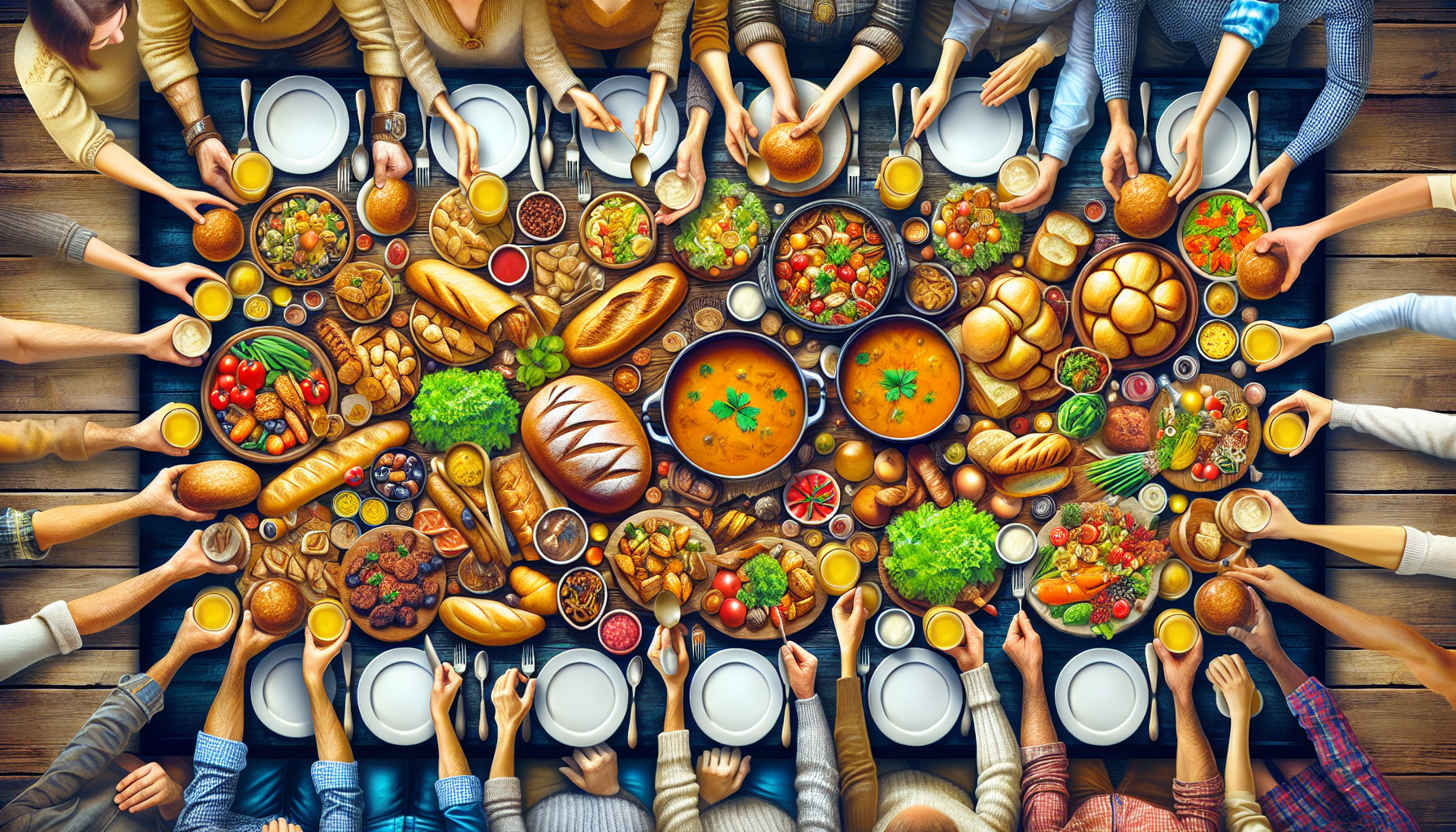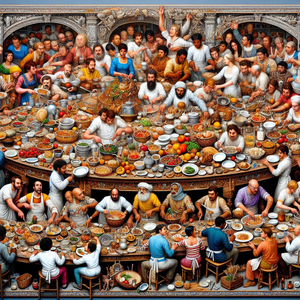Culinary Therapy: The Healing Power of Cooking Careers

To become a culinary therapist, individuals typically need a unique blend of expertise in both culinary arts and mental health. Many professionals in this field possess degrees in psychology, counseling, or social work, alongside certifications from accredited culinary schools. This dual training equips culinary therapists with a comprehensive understanding of the psychological aspects of cooking, as well as the technical skills necessary to guide others in the kitchen. Prospective culinary therapists may engage in specialized training programs that focus on therapeutic cooking or food-based therapy. Organizations such as the National Association for the Practice of Eating Disorders (NAPED) and the Culinary Institute of America offer courses tailored to this emerging field. Furthermore, hands-on experience in both culinary environments and therapeutic settings is invaluable, allowing aspiring culinary therapists to develop a nuanced understanding of how to effectively utilize cooking as a healing modality. For example, internships or volunteer work in community kitchens or mental health facilities can provide practical insights into the dynamics of cooking as therapy.
Therapeutic Techniques Used
Culinary therapy employs a diverse array of techniques that leverage the sensory experiences associated with cooking. One prominent method is the practice of mindfulness, where individuals concentrate on the present moment while engaged in the cooking process. Simple tasks such as chopping vegetables or kneading dough can serve as meditative exercises, helping to alleviate anxiety and promote relaxation. Group cooking sessions represent another valuable technique within culinary therapy. These communal experiences foster social interaction and community-building, allowing participants to develop communication skills, cultivate friendships, and create supportive networks. Cooking classes designed for specific populations—such as individuals coping with grief or those in recovery from addiction—can facilitate emotional healing and personal growth through shared experiences and collaboration. Exploring individual relationships with food is also a crucial aspect of culinary therapy. Guided discussions and cooking activities encourage participants to confront underlying issues related to body image, food scarcity, or cultural heritage. By reflecting on these topics, individuals can gain profound insights and facilitate healing within themselves.
Benefits of Cooking as Self-Care
The advantages of culinary therapy extend well beyond merely learning how to cook; engaging in culinary arts can significantly improve mental health and well-being. The act of preparing a meal fosters a sense of accomplishment, boosts self-esteem, and encourages creativity. For many, cooking serves as a form of self-expression, allowing individuals to explore their identities and share their narratives through food. Research supports the positive effects of cooking on mental health. A study published in the Journal of Positive Psychology found that participants who engaged in creative activities, including cooking, reported heightened feelings of happiness and reduced anxiety. Culinary therapy fits this mold perfectly, as it requires focus and can transport individuals away from their worries, even if just for a short period. Moreover, culinary therapy has proven effective in addressing various mental health issues, such as depression and anxiety. Through engagement with food and the cooking process, individuals can cultivate healthier relationships with both their diets and their emotions. The tactile nature of cooking, coupled with the satisfaction derived from creating nourishing meals, can be deeply fulfilling and restorative.
Culinary therapy represents more than a mere career path; it is a powerful means of promoting mental health and well-being. By forging connections between culinary arts and psychological support, culinary therapists offer unique and transformative experiences that empower individuals to heal through the act of cooking. As society continues to explore the healing potential of food, culinary therapy stands out as an innovative approach that emphasizes the therapeutic power of creating, sharing, and enjoying meals. Whether through individual sessions or communal workshops, the art of cooking can serve as a vital ingredient in our collective journey toward mental health and self-discovery. In a world where the significance of mental health is ever-increasing, embracing culinary therapy may just be the recipe for healing that many are seeking.
Culinary Therapist
Mental health facilities, community centers, wellness retreats
Core Responsibilities
Facilitate individual and group cooking sessions aimed at promoting mental wellness and emotional healing.
Develop specialized culinary programs tailored to specific populations, such as individuals recovering from addiction or dealing with grief.
Conduct assessments to understand participants' needs and tailor therapeutic approaches accordingly.
Required Skills
Strong background in both culinary arts and psychology or counseling.
Certification in culinary therapy or related fields.
Excellent communication and interpersonal skills for working with diverse groups.
Food-Based Therapy Coordinator
Non-profit organizations, health clinics, educational institutions
Core Responsibilities
Design and implement food-based therapy programs that integrate cooking with psychological support.
Collaborate with mental health professionals to track participants' progress and adjust programs as needed.
Organize workshops and events that promote community engagement through culinary activities.
Required Skills
Experience in program development and evaluation within therapeutic settings.
Knowledge of nutrition and dietary restrictions.
Ability to create a safe and inclusive environment for participants.
Culinary Arts Instructor with a Focus on Therapeutic Techniques
Culinary schools, community colleges, mental health organizations
Core Responsibilities
Teach cooking classes that incorporate therapeutic practices such as mindfulness and emotional exploration.
Develop lesson plans that connect culinary skills with mental health concepts.
Provide one-on-one guidance to students needing additional support in their cooking journey.
Required Skills
Culinary arts degree or equivalent experience, plus training in mental health or counseling.
Experience teaching diverse groups, including those with mental health challenges.
Creativity in lesson planning and ability to adapt to students' varying needs.
Mindfulness Cooking Coach
Wellness centers, yoga studios, holistic health retreats
Core Responsibilities
Guide individuals and groups through mindful cooking practices that enhance focus and reduce anxiety.
Develop tailored mindfulness exercises that can be integrated into cooking routines.
Lead workshops that educate participants about the mental health benefits of cooking and mindfulness.
Required Skills
Certification in mindfulness practices and experience in culinary arts.
Ability to create a calming and supportive cooking environment.
Strong facilitation skills to encourage group participation and engagement.
Community Kitchen Manager
Non-profit organizations, community service agencies, local health departments
Core Responsibilities
Oversee operations of community kitchens that provide culinary therapy sessions and workshops.
Collaborate with mental health professionals to develop programs that address community needs.
Manage volunteer staff and coordinate events that promote cooking as a form of self-care.
Required Skills
Experience in kitchen management and community outreach.
Strong organizational and leadership skills.
Understanding of food safety regulations and nutritional guidelines.


